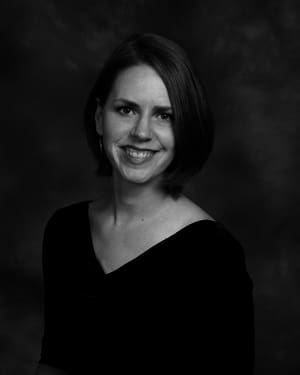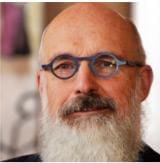This past April, Comment marked 30 years since the publication of Creation Regained. In our interview with its author Dr. Al Wolters (found in two parts, here and here), we noted that the little book has had a big influence on emerging churches throughout the globalizing world. But it’s also had a profound influence on churches in North America. This week, Comment features a voice from a nascent Reformed church in Latin America while also sharing stories from a pastor based a little closer to home in Kingston, Ontario. We’re pleased to feature these stories and we’d love to hear yours! Feel free to drop Comment a note about your experience with Creation Regained, we want to hear it!
—The Editors
How Creation Regained Changed Everything
by Heidi De Jonge
“It’s all right here! The worldview that shapes my life and ministry—it’s all right here.” Those words kept running through my mind as I paged through my well-highlighted copy of Al Wolter’s Creation Regained—the textbook for my Introduction to Philosophy course at Dordt College back in the mid-1990s.
Wolters spells it out so clearly for us—the grand Scriptural narrative from Creation to New Creation. I’ve been a pastor for ten years now, and it is this arc, this story, that finds its way into the deep structure of my sermons, that serves as the foundation for our new member’s classes, that winds its way around my wrist in the “worldview bracelets” I’ve made with new Christians, weekend retreat participants, and women in recovery programs. It is this arc that gave me perspective on my own story when my first husband was killed in a car accident, when I remarried, and when my first daughter was diagnosed with and healed from cancer.
 |
The importance of vocational discernment is a strong heartbeat in Creation Regained. Wolters writes, “God’s will for human beings is not only general but also particular, touching us in what has traditionally been designated ‘calling’ or ‘guidanc’.” The scope of that calling is as wide as creation: “We are called to participate in the ongoing creational work of God, to be God’s helper in executing to the end the blueprint for his masterpiece.” The heart of my work beats with similar strength.
I began ordained ministry as the “pastor for discernment” at Calvin Theological Seminary—walking alongside people who were discerning a calling into vocational ministry and considering my work equally successful when a young person discerned that they were not called to vocational ministry as when they discerned that they were. All work is God’s work!
In my current call, as pastor of Westside Fellowship CRC in Kingston, Ontario, I’ve committed to visiting parishioners in their places of work or volunteering. I call the effort “Westside @ Work” and report on these visits to the rest of the congregation so that we can together acknowledge the broad scope of the kingdom work happening through the lives of those who make up the church.
In re-reading my copy of Creation Regained, I am struck by its humble confidence. Wolters reminds me that I must think of myself with sober judgment, for as a Christian, as a pastor, and as a part of the church, I am not immune to the effects of the fall. The dividing line of the antithesis cuts through my work, my home, and my own heart. And I have every reason to be full of confident hope, that God is restoring and regaining his territory, the territory of creation, of which I am an active part.
Creación Recuperada in Guatemala
by Ken Herfst
For the past 10 years I have taught at the Seminario Evangélico Presbiteriano (SEP) de Guatemala. While SEP has always been a “confessionally Reformed” seminary, in recent years the importance of a more intentional Reformed perspective has guided the development of the academic curriculum as well as the informal theological formation of non-ordained church leadership through a programmed study project. Traditionally, attempts to strengthen the Reformed identity had been limited to a rediscovery of the “Five Points of Calvinism.” The result was not exactly encouraging, and it was difficult to get many people excited about themes like total depravity—even when they admitted the Biblical basis for such a theological position! During 2009, it was my privilege to give numerous conferences on Calvin and demonstrate that Calvinism cannot be reduced to five points written in response to someone else’s agenda.
Due to historical circumstances, the Presbyterian Church in Guatemala had been shaped by a more pietistic evangelical theology. As people began to see the richness of Reformed Christianity that was firmly rooted in Trinitarian Theology as well as radically centered upon Christ, the response was encouraging. After a four part series on Calvin’s legacy for today to celebrate the 500th anniversary of Calvin’s birth, a number of Church leaders approached me about the possibility of repeating the conferences in different parts of the country. As one person said to me: “It makes me want to be Reformed.” Gradually I introduced neo-Calvinism into the discussion.
On a different level, in a seminary course on Calvin’s Theology I assigned the Spanish version of Creation Regained. Classes in which we discussed the required readings from Creación Recuperada regularly witnessed the proverbial “aha” moments as students came to appreciate the breadth of the good news of the Kingdom. Rather than a ministry that focused exclusively on an individual’s conversion or a futuristic understanding of the Kingdom that suggests that the good news only has to do with forgiveness of sins and going to heaven after death, students suddenly grasped that creation is good and that all of life could and should be redeemed. The renewal of all things in Christ opened a multitude of opportunities and ministry possibilities. Wolter’s discussion of the difference between “structure” and “direction” was crucial in re-evaluating legalistic tendencies that stem from a “fall-based” theology with its pessimistic approach to life.
One particular student embraced the invigorating scope of God’s restoration project with noticeable joy as he thought about ways in which his church could embody the message of creation renewal in their local context. His only regret was expressed in a poignant question: “Why haven’t we heard of this before?”
At a local church level, it was my privilege to work with young professionals. Two young women shared their frustrations related to wanting to serve God but not feeling gifted in evangelism. We worked through parts of Creación Recuperada. Today, one of these women has a combined vocation as a lawyer, psychologist and university lecturer and heads the government’s regional legal defence for abused women in Quetzaltenango; the other is a systems engineer who went on to get a master’s degree in community development in the USA and now serves as executive director of a Christian association that works with families with HIV/Aids, seniors, community development and disaster relief. Slowly but surely, the vision of a renewed world is taking root and Christ’s presence is tangible in ways that anticipate the final restoration of all things.



